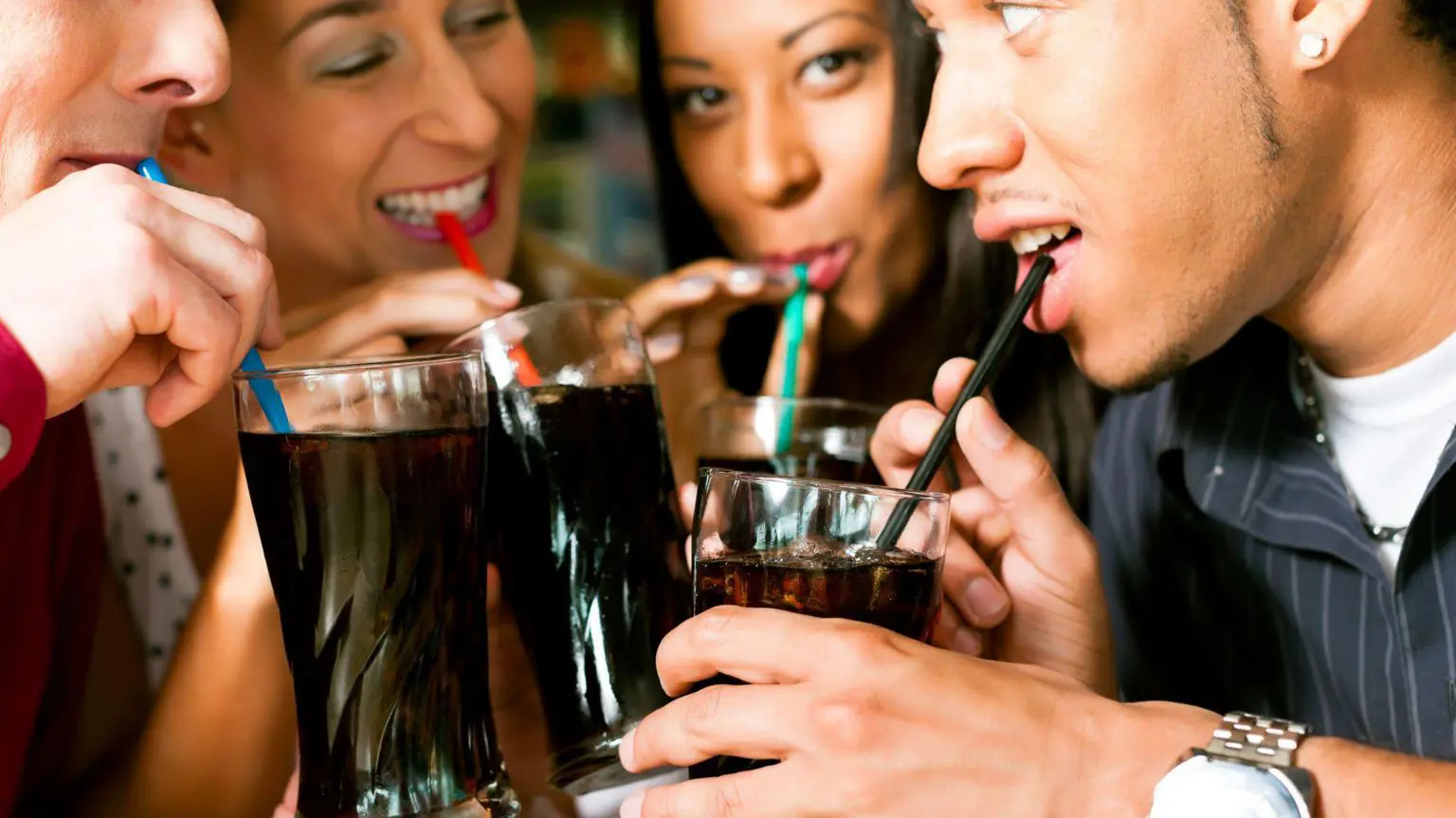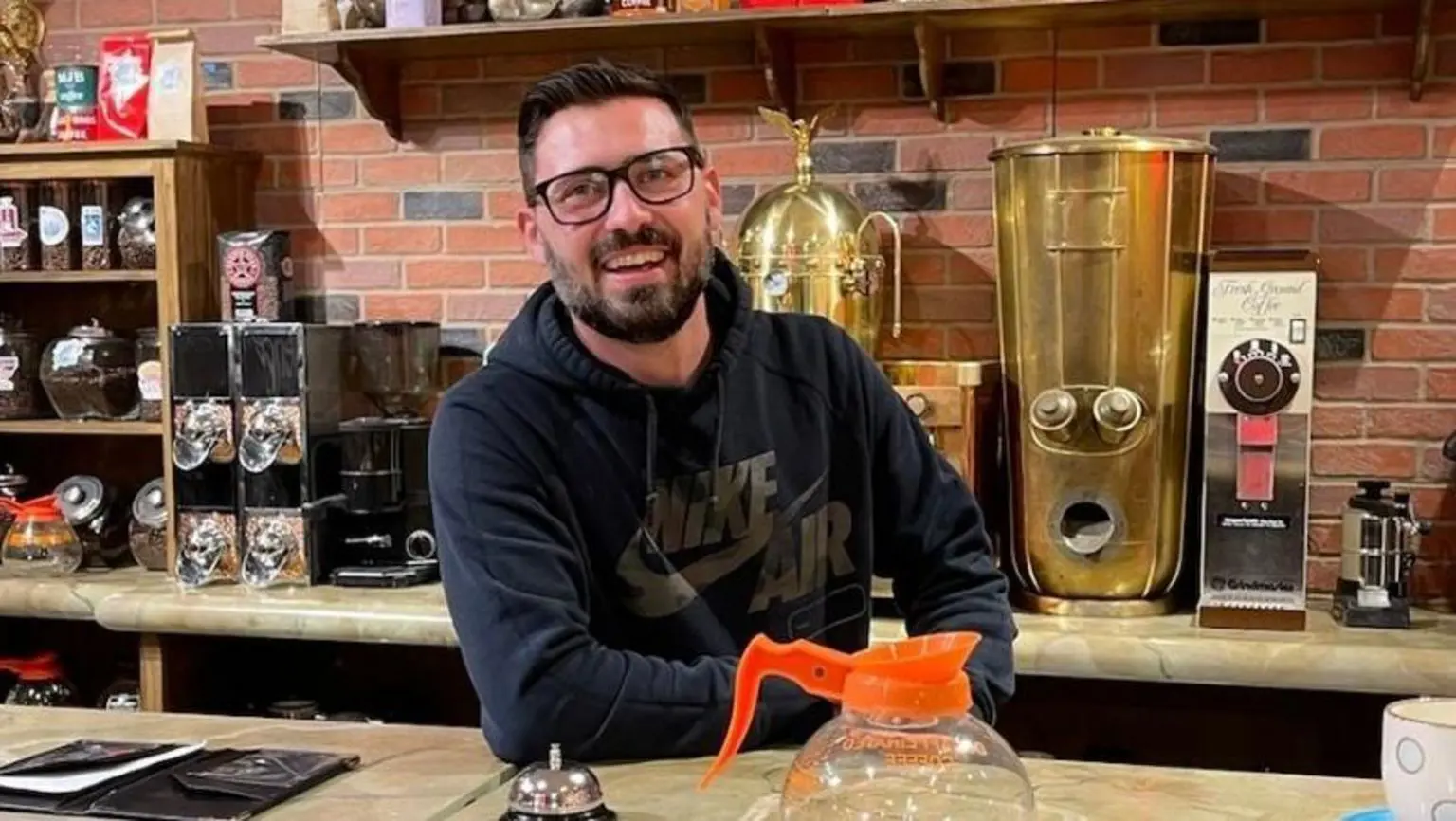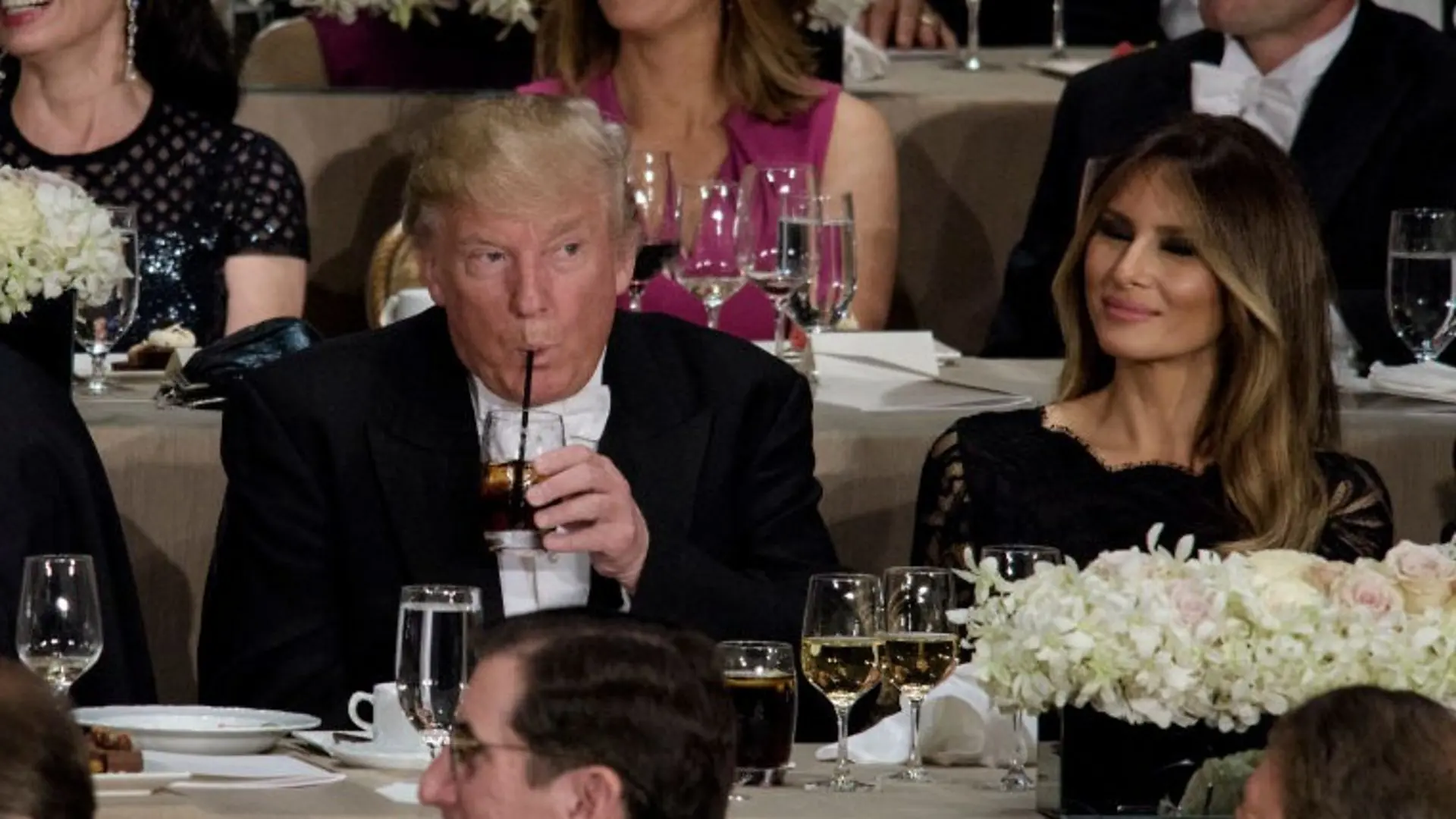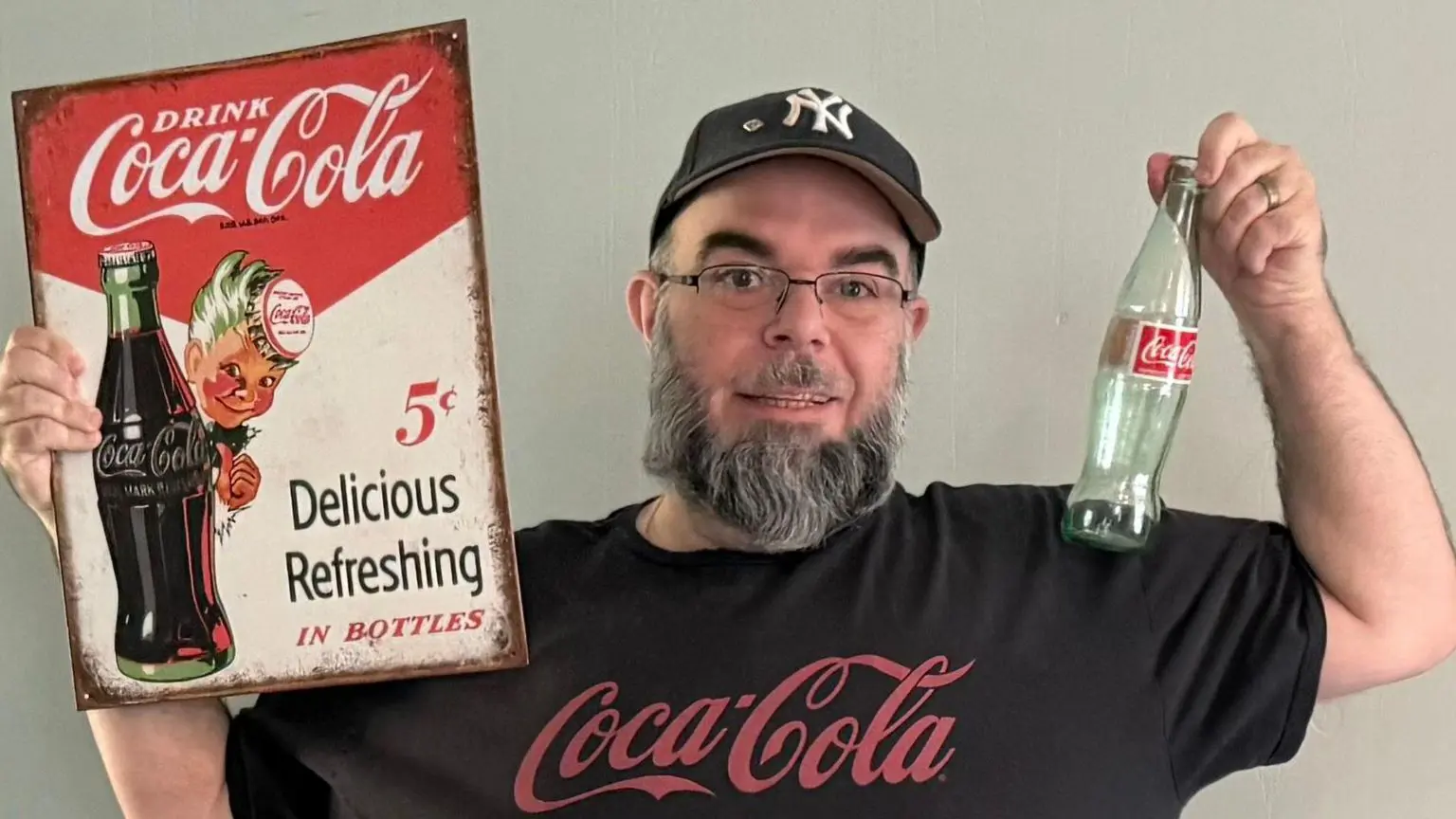Jordan Hayes typically steers clear of politics. He did not vote in the 2024 election and has mixed feelings about Donald Trump.
So the 37-year-old from California was surprised to learn last week that he stands with the president on at least one issue – Coke made with cane sugar is better.

“There’s a different kind of sweetness involved,” said Hayes, a longtime fan of cane sugar Coke, which is marketed in the US as Mexican Coke and differs from the corn syrup version typically sold there.
It’s available to Americans at a premium but Hayes contends the higher price is worth it. The president made a similar case last week, when he announced that Coca-Cola, at his urging, had agreed to use cane sugar in the US.
The sugar endorsement by Trump might seem unusual on its face from a man famous for his preference for Diet Coke, which is sugar free.
But it was just the latest example of his support for the industry, which has been known in Washington for decades for its outsize political donations, ability to get the White House on the phone and legendary lobbying operations.
“Don’t [expletive] with sugar”, former Republican House Speaker John Boehner noted in his memoir.

The sector has long benefited from government policies, including high tariffs that have propped up the sugar prices in the US, which often run double the world price, yielding billions of extra dollars a year for producers.
Under the Trump administration, the US has expanded those supports, tightening restrictions on imports and increasing its price guarantees for sugar farmers as part of the Trump-backed “Big Beautiful Bill”.
Meanwhile, Trump’s Health Secretary Robert F Kennedy Jr has taken aim at the industry’s biggest competitor, threatening a ban on corn syrup, which he has called “poison”.
The Sugar Alliance, which represents the sector, did not respond to requests for comment on Coca-Cola’s decision, for which Trump took credit.
But analysts said the move put sugar farmers in a sweet spot, increasing demand and ultimately how much they get for their crop.
“They have the president both championing restrictions that keep out foreign competition and also encouraging more use of sugar,” said Colin Grabow, a trade specialist at the Cato Institute. “This is fantastic for them.”

Coca-Cola has said its new offering, made with cane sugar and set to launch this autumn, will complement its existing line-up of colas.
Industry experts said they did not expect the plan to lead to a sudden, wholesale shift to sugar, noting the high price of the ingredient and limits on domestic supply. But just the possibility sent waves through the food industry.
Corn syrup manufacturer Archer Daniels Midland briefly plunged more than 6% before recovering, while the Corn Refiners Association, which represents makers of corn syrup, warned of rural job losses and other economic damage.
Iowa corn farmer John Maxwell, whose family has farmed since the 1850s, said he was surprised by the president’s position, given the way he has cast himself as a champion of American jobs.
“He’s tooted that horn real hard… so to take a stance was surprising to me,” he said.
Bob Hemesath, a hog and corn farmer in Iowa, was likewise puzzled.
“Going away from high fructose corn syrup will hurt jobs here and hurt farmers here and it kind of goes against everything the president and his administration are trying to do,” he said.
Vincent Smith, director of agricultural policy studies at the American Enterprise Institute, said he was surprised to see Trump risk support from corn growers – a key part of his base and also traditionally powerful in Washington.
It is also a far bigger group than sugar farmers, who number only about 4,000 in the US, less than a quarter of which produce sugar cane.
“Do you want to alienate 200,000 people or do you want to alienate 4,000 families?” he asked, while noting that his review of political contributions between 2018 and 2022 found members of the Sugar Alliance gave more than any other agricultural interest group, despite being small in number.
Trump-backed groups are among the ones in recent years to have received significant donations from the Fanjul family, Florida-based sugar titans, according to OpenSecrets.
“If you can write large cheques for the election or the president, you do get access,” Smith said.
In January, when Coca-Cola presented Trump with personalised cans of diet cola, Trump raised sugar use with the company, getting Jose Fanjul on the phone to discuss the issue, according to Josh Dawsey’s new book 2024: How Trump Retook the White House.
Whether Americans will go for it remains an open question.
Мексиканська кола, яку Coca-Cola пропонує в США протягом двох десятиліть, завоювала відданих прихильників таких клієнтів, як Hayes.
Але рішення компанії почати продавати це було більше пов’язане з виходом на ринок іммігрантів і ностальгією за скляними пляшками, ніж з користю для здоров’я чи смаку.
Останніми роками основним напрямком діяльності компанії було розширення асортименту напоїв із низьким вмістом цукру та без цукру, оскільки занепокоєння щодо цукру та зростання кількості препаратів проти ожиріння загрожують контролю над ринком напоїв.

Експерти в галузі охорони здоров’я кажуть, що немає переконливих доказів, які б виправдовували перевагу одного підсолоджувача над іншим.
Обидва цукру збільшують усі фактори ризику, і між ними немає суттєвої різниці, сказала Кімбер Стенхоуп, дослідник і біолог з харчування з Каліфорнійського університету в Девісі, яка провела тести, порівнюючи вплив двотижневого споживання цукру та кукурудзяного сиропу.
Вона сказала, що є питання про те, що саме входить до кукурудзяного сиропу, який використовується в газованій воді, що може призвести до відмінностей у здоров’ї поза лабораторією. Але вона відкинула аргументи про те, що звичайний цукор менше переробляється, як «цілковиту причіпку», зазначивши, що обидва продукти вимагають позбавлення від клітковини та інших харчових переваг.
Дискусії щодо того, чи дійсно кока-кола з тростинним цукром має чудовий смак, ймовірно, також триватимуть.
Річард Траппасс, 48-річний мешканець Теннессі, споживає кока-колу або дві на день і колекціонує пам’ятні речі Coca-Cola, як-от прикраси та старовинні скляні пляшки. Він пишається тим, що може відрізнити кока-колу від пепсі за кількістю бульбашок.
Почувши ажіотаж про мексиканську кока-колу кілька років тому, він заручився допомогою своєї дружини, щоб провести сліпий паралельний тест на смак двох різних рецептур.
«Перше, що я сказав, було: «Ти налив ту саму газовану воду в склянку, щоб мене обдурити?», — згадує він. «Тоді я подумав: «Вони абсолютно однакові на смак».
Незважаючи на власну байдужість, Траппасс сказав, що вважає, що лідерство Трампа щодо цукру сподобається людям, які підозрюють кукурудзяний сироп і сентиментально ставляться до Coca-Cola минулого.
«Ми збираємося повернути цукор до нашого класичного продукту Coca-Cola — це приваблює його шанувальників», — сказав він.

Залишити відповідь